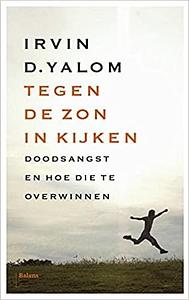Take a photo of a barcode or cover
challenging
hopeful
informative
inspiring
reflective
medium-paced
informative
medium-paced
On the "MIGHTIEST THOUGHT" by Friedrich Nietzsche - The idea of living your identical life again and again for all eternity can be jarring, a sort of petite existential shock therapy. It often serves as a sobering thought experiment, leading you to consider seriously how you are really living.
On "RIPPLING" - Rippling refers to the fact that each of us creates — often without our conscious intent or knowledge — concentric circles of influence that may affect others for years, even for generations. That is, the effect we have on other people is in turn passed on to others, much as the ripples in a pond go on and on until they’re no longer visible but continuing at the nano level. The idea that we can leave something of ourselves, even beyond our knowing, offers a potent answer to those who claim that meaninglessness inevitably flows from one’s finiteness and transiency.
On "RIPPLING" - Rippling refers to the fact that each of us creates — often without our conscious intent or knowledge — concentric circles of influence that may affect others for years, even for generations. That is, the effect we have on other people is in turn passed on to others, much as the ripples in a pond go on and on until they’re no longer visible but continuing at the nano level. The idea that we can leave something of ourselves, even beyond our knowing, offers a potent answer to those who claim that meaninglessness inevitably flows from one’s finiteness and transiency.
I'm very glad I found out about this book. I can't say that it's a self-help book. It doesn't give specific instructions, but suggests various ideas and ways to look at things differently, think about things you've never thought of before.
The book inspires you to think bigger and do more. And it does bring a little bit of light to the dark subject of death.
The book inspires you to think bigger and do more. And it does bring a little bit of light to the dark subject of death.
emotional
inspiring
reflective
fast-paced
Some interesting thoughts I got from the book:
What would you do if you'd have to relieve your life infinitely. Same pains, same pleasures, same everything. Would it be hell or heaven? Would you still do what you are doing now?
The quality of our life is not determined by our experiences but by our way of interpreting them.
The 4 existential interests: death, isolation, meaning of life, freedom.
Efficient therapy: the patient shares repressed feelings -> the psychologist acknowledges and accepts them -> encouraged by the acceptance, the patient feels safe to share riskier thoughts and feelings.
What would you do if you'd have to relieve your life infinitely. Same pains, same pleasures, same everything. Would it be hell or heaven? Would you still do what you are doing now?
The quality of our life is not determined by our experiences but by our way of interpreting them.
The 4 existential interests: death, isolation, meaning of life, freedom.
Efficient therapy: the patient shares repressed feelings -> the psychologist acknowledges and accepts them -> encouraged by the acceptance, the patient feels safe to share riskier thoughts and feelings.
An existential therapist talking around the universality of death anxieties and case studies of various . I heard the book being discussed on Radio 4 A Good Read http://www.bbc.co.uk/programmes/b07ffxt5 which prompted me to pick it up.
Whilst the book does provide fascinating insights, I find its bite-sized chunks, surrounded by (a fairly patronising) therapist's "setting" rather simplistic. This is hidden amongst pages of erudition and philosophy from many of of the world's great thinkers. Facing death with fear being a timeless notion - fancy! Whilst the author never suggests he has all the solutions for his clients, I find his presentations of client settings and their crisis points rather high handed and pedagogical rather than reflective. Maybe its volume of positive reviews is a feeling of being given a permission to talk about death, but it didn't do it for me
Bottom line is live your life to the full...but I had long worked this out for myself.
Whilst the book does provide fascinating insights, I find its bite-sized chunks, surrounded by (a fairly patronising) therapist's "setting" rather simplistic. This is hidden amongst pages of erudition and philosophy from many of of the world's great thinkers. Facing death with fear being a timeless notion - fancy! Whilst the author never suggests he has all the solutions for his clients, I find his presentations of client settings and their crisis points rather high handed and pedagogical rather than reflective. Maybe its volume of positive reviews is a feeling of being given a permission to talk about death, but it didn't do it for me
Bottom line is live your life to the full...but I had long worked this out for myself.
emotional
informative
inspiring
reflective
slow-paced
“I do not intend this to be a somber book. Instead,
it is my hope that by grasping, really grasping, our
human condition—our definiteness, our brief time in the
light—we will come not only to savor the preciousness
of each moment and the pleasure of sheer being but to
increase our compassion for ourselves and for all other
human beings.”
it is my hope that by grasping, really grasping, our
human condition—our definiteness, our brief time in the
light—we will come not only to savor the preciousness
of each moment and the pleasure of sheer being but to
increase our compassion for ourselves and for all other
human beings.”
"Although the physicality of death destroys us, the idea of death saves us."



